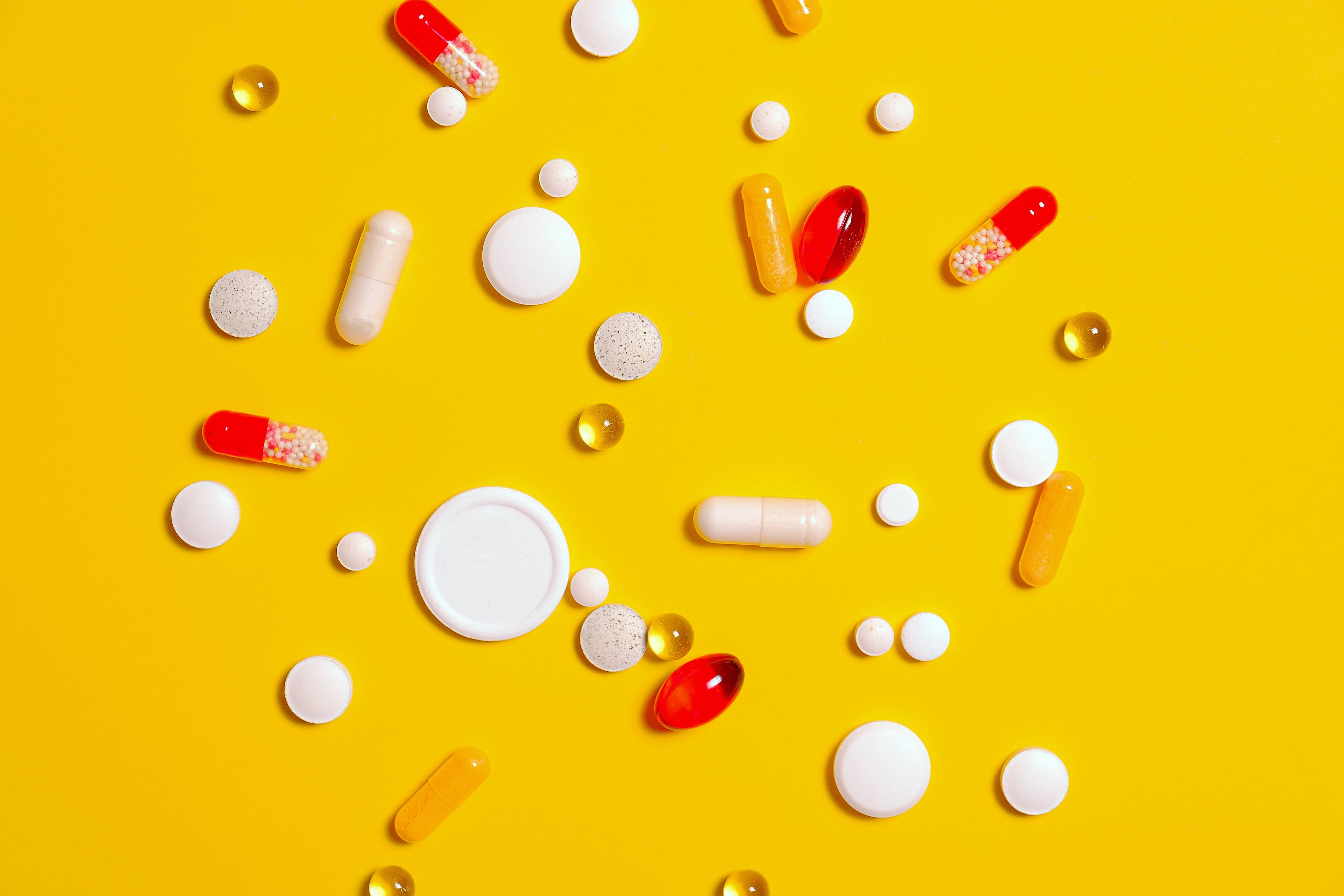Best Nutritional Supplements For a Renal Diet + What to Look For and Product Recommendations

Written by Chad Birt on Wed Nov 22 2023.

If you or your loved one has kidney disease, you’ve likely been asked to eat a renal diet. Eating certain foods (and avoiding others) can protect your kidneys and prevent further kidney damage. But if you don’t always have time to cook, you might wonder if nutritional supplements can complement your efforts.
To learn more about kidney health and kidney-friendly nutrition supplements, we connected with several experts. Below, we provide insights on what to look for and make product recommendations.
Why Is Good Nutrition Important For Kidney Health?
Your kidneys help filter waste from your bloodstream, produce urine, and control blood pressure. They’re small but powerful, and healthy kidneys are essential to your overall health.
“Eating a well-balanced diet is crucial because too much sodium and potassium can harm your kidneys and affect their function,” explains Krutika Nanavati, RDN, a registered dietitian nutritionist at ClinicSpots. “It can also slow the progression of kidney disease and improve kidney function.”
Are There Any Supplements That Can Support Kidney Health and Function?
There isn’t a specific supplement that automatically improves kidney health, but there are vitamins and minerals you should consider including in your diet.
“Taking proper doses of vitamin D has been shown to be helpful for those with kidney disease,” says Dr. Arielle Levitan, MD, an internal medicine physician and the co-founder of Vous Vitamin, LLC. “There is also some evidence that taking antioxidant vitamins (e.g. vitamin C, E, and A) can support kidney function. Sometimes, iron is beneficial, but this is variable depending on your individual circumstances.”
“Nutritional supplements like Omega-3, vitamin B, and probiotics can also support kidney health,” adds Nanavati “But they aren’t a substitute for a balanced, nutritious diet.”
Nutritional Supplements for a Renal Diet - Important Considerations
There are several things to consider before you buy nutritional supplements for a renal diet, including:
Your General Health
About one in three people with kidney disease also has a co-occurring condition like diabetes. Addressing these issues simultaneously prevents complications and supports kidney health.
“Kidney patients should always confer with their doctors before starting any type of supplementation,” Dr. Levitan says. “They may have very specific restrictions on certain supplements, such as magnesium and potassium.” That’s because if your kidneys don’t function properly, they may have problems filtering these nutrients from your blood.
Your Diet
Nanavati says that eating a nutritious diet is the best line of defense against kidney disease. For example, “focusing on meals that control your blood sugar levels lessens the negative effects of diabetes on kidney health. A diet high in fiber and whole grains and low in processed sugars prompts insulin sensitivity and lowers the incidence of kidney-damaging consequences.”
Another important dietary consideration? Protein control.
“Even though your body needs protein to operate, too much of it can harm the kidneys,” explains Sarah Jeffries, a former paramedic and Qualified Mental Health First Aid Trainer at First Aid Courses Manchester. “You can protect kidney function and avoid problems linked to protein overload by taking a calculated approach to your protein consumption.”
Product Certifications
Not all nutritional supplements are equally beneficial. “I always recommend products that are USP or GMP certified to provide a measure of security. Supplements with these distinctions are typically of reliable quality.”
Caregiver Tip
USP and GMP certifications indicate good manufacturing practices and a commitment to quality, purity, performance, and consistency.
Nanavati agrees, adding that people should also research the company’s ingredient-sourcing practices. Supplement manufacturers who are transparent about sourcing are generally more trustworthy, but “supplement efficacy may vary.”
Carewell’s Best Nutritional Supplements For a Renal Diet
Now that you know what to look for, here’s a look at some of the kidney-friendly nutritional supplements we carry. The products below are a mix of our best-selling and highest-rated kidney products. When applicable, we’ve included real customer feedback under the heading “Hear It From a User/Caregiver.”
1) Nepro with Carbsteady, Oral Supplement, Vanilla Flavor
This oral nutrition supplement from Nepro is formulated specifically for people with kidney disease. It’s loaded with protein and calories to replace weight loss caused by dialysis. The product can be consumed orally or administered with a feeding tube.
Key Benefits & Features:
19 grams of protein per eight-ounce bottle
Vanilla flavor
Low in phosphorous, potassium, and sodium
Hear it from a caregiver
“My husband is on dialysis and he loves these! We also love the price.”
- Gwendolyn W.
2) Novasource Renal Oral Supplement, Vanilla
Novasource Renal is formulated to support people with chronic kidney disease (CKD). It’s calorically dense and filled with vitamins, minerals, and protein. Like Nepro, the supplement can be taken orally or administered with tube feeding.
Key Benefits & Features:
Optimized electrolyte content, including potassium, magnesium, sodium, and phosphorous
Provides 19% of calories from protein
Vanilla flavor
Hear it from a caregiver
“Good stuff. [I] like the vanilla flavor. This helps because dialysis treatments drain me.”
- Dorothy V.
3) Novasource Renal Oral Supplement, Mocha
Prefer coffee over vanilla? Then this renal supplement is for you! It has the same formulation as #2 on this list but with a different flavor.
Key Benefits & Features:
Formulated for people with chronic kidney disease (CKD) and acute kidney injury (AKI)
Calorically dense
Gluten and lactose-free
Hear it from a caregiver
“I love this stuff. [The] vanilla flavor is also ok. Very handy to get nutrition without hassle, especially with exhaustion from CKD. And no dishes! Carewell [makes it] easy to order and [provides] quick delivery.”
- Carol B.
4) Geri-Care Vitamin D Supplement
Vitamin D plays a crucial role in kidney function, but most people don’t get enough of it. Consider that the National Institutes of Health (NIH) recommends everyone four and older take 20 micrograms (800 IU) of vitamin D daily, especially if they don’t go outside. Since many older adults are stuck inside, adding this supplement to your regimen is worth considering.
Key Benefits & Features:
400 IU strength
Ideal for those who don’t get outside often
Helps the body absorb calcium for bone development
Hear it from a caregiver
“Exactly what I needed. Thank you for your help. I could not find this dosage. Your company really came through for me.”
- David W.
5) Nature’s Bounty Iron Supplement
Many dialysis patients need extra iron because their diets prevent them from consuming red meat and other iron-rich foods. Iron supplementation may be worth considering if you have kidney disease, but you must talk with your healthcare provider first. Iron can be toxic without the proper dosage. It can also cause stomach problems, like nausea, abdominal pain, and diarrhea.
Key Benefits & Features:
A safe, daily supplement
65 mg of iron per capsule
Supports red blood cell production
Have Renal Diet-Related Questions? We Can Help!
“People with chronic kidney issues often feel fatigued and worn out,” says Dr. Levitan. “Replacing nutrients safely and appropriately through a personalized vitamin routine can be of assistance in improving their energy overall health and well being.”
Here at Carewell, our care specialists regularly help family caregivers and their loved ones choose nutrition supplements for renal health. If you have questions or need assistance making a selection, we’re here for you! Call (800) 696-CARE or send an email to support@carewell.com.
Nutrition Supplements For a Renal Diet - Commonly Asked Questions
1) Should someone speak with a healthcare professional before taking a nutritional supplement? Why or why not?
“As with all vitamins and supplements, taking safe products and medically appropriate doses is essential,” explains Dr. Levitan. “Our vitamin needs are always individual based on diet, lifestyle, and specific health issues. Kidney patients should always confer with their doctor or doctors before starting any new supplementation.”
2) What is the proper dosage for kidney supplements?
Nutritional supplements are unique, just like the people who take them. There’s no dose that’s one-size-fits-all. Speak with your doctor to get personalized dosing recommendations.
3) How can someone improve their kidney health aside from supplementation?
Nutritional supplements can support kidney health, but they aren’t a cure-all. Nanavati says that people with kidney disease should eat a balanced diet with fruits, vegetables, lean proteins, and whole grains; stay hydrated; and exercise regularly.

Chad Birt is a freelance medical writer who resides in Astoria, Oregon. When he isn't behind a keyboard, you can find him hiking, camping, or birdwatching with his wife Ella and their two dogs, Diane and Thoreau.